Book A Week -Recommended Reads – Week 1-15
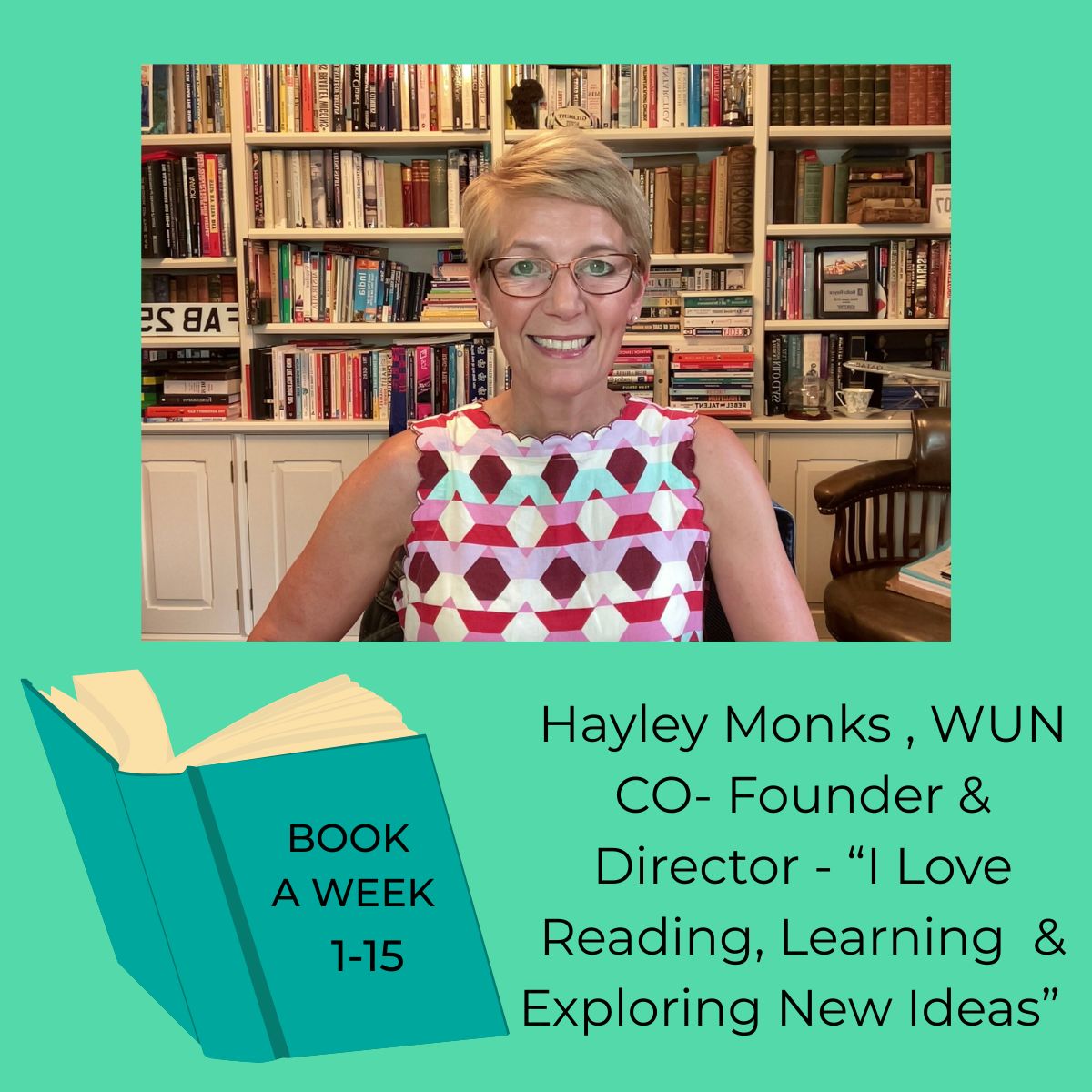
I love reading, learning and exploring new idea’s. It may be obvious by the background, and it is to those who know me. I am often quoting books or recommended reads to those I network with and mentor.
Picking up on a suggestion a couple of months ago, via WUN, I am sharing some of my most favourite reads, and why I think they are great and useful or helpful. It was difficult to curate a short list, so it a long one… this is 1 of 52! A book a week for the year ahead ☺️ Hayley Monks, WUN Co-Founder & Director.
Recommended reads to date 1-15
- Multipliers
- Why women don’t ask
- The female brain
- Educated
- The happiness advantage
- The Effortless Experience
- The Fish Philosophy
- How BIG things get done
- A History of the World in 21 Women
- Time to Think
- Feel the fear & do it anyway.
- What got you here, won’t get you there
- Make Your Own Map
- The Accidental Sexist
- Prisoners of Geography
I love books 📚 (1 of 52)
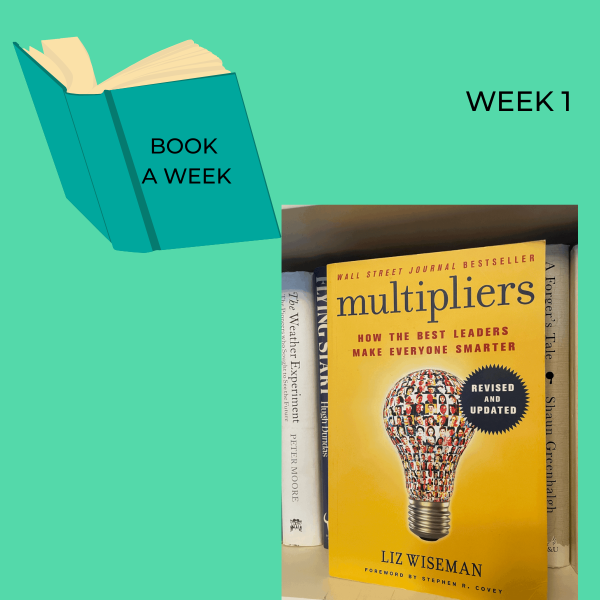
Multipliers – Liz Wiseman’s excellent book has probably been my most recomended book for leaders.
The books characterises two stye of leaders; Multipliers and Diminishers.
A multiplier leaders makes those around them feel more capable and encourages and empowers them to explore potential. When you read the book and it describes the attributes of these leaders, you may find that managers and leaders you have worked for come to mind!
One of the leades who had the most influencial impact on me was Kanat Emiroglu. Kanat was a Multiplier and had a hugesly positive impact on me and my career. Multiplier see intelligence as continually developing – a growth mindset.
On the other hand, there are diminishers. Leaders with diminishing tendancies are controlling, the make you question your capability and decision making and can drive a competent and capable person into self doubt, eroding confidence and perceived incompetency… I have worked for one of those too…
I strive to be a Multiplier. To find people’s native talent, water them so they can grow and get out of the way! Wiseman give great insight into how to lead and how to continually check ourselves when our diminishing tendencies creep in – after all none of us are perfect 😜
Reviewing this has been a great reminder of the leader I continually strive to be. Brilliant brilliant read for leaders everywhere
For all you wanna be Multiplier’s!
I love books 📚 (2 of 52)

Why women don’t ask..… the high cost of avoiding negotiation and positive strategies for change…
This book was recommended by Paul Fisher when I re-visited Saïd Business School, University of Oxford as an Alumni Facilitator on their Women Transforming Leadership Programme in 2021. Paul led an afternoon session on Negotiation.
The book talks through why we may not ask, aka ‘nice girls don’t ask’, the fear of asking and ‘scaring the boys’, but the most important thing is the impact of not asking!
Opportunity does not always knock! You cannot assume your hard work will be recognised AND we (all of us) are not mind readers, as so I won’t know what you want, need , aspire to, unless you tell me.
Asking is one of the things I encouraged my children to do “you can always ask, the answer may not always be yes, but don’t let that stop you asking”. They are both happy and achieving adults (I’m probably biased there 😊) but I haven’t always took my own advice, consistently, so books like this are a great reminder
Paul also joined a WUN4ALL and spoke to the #WUN network in October 2022 and the recording of that can be found below for those who prefer audio / visual to reading…
WUN For All -Negotiation – Womens Utilities Network
Happy Reading 📚
I love books 📚 (3 of 52)
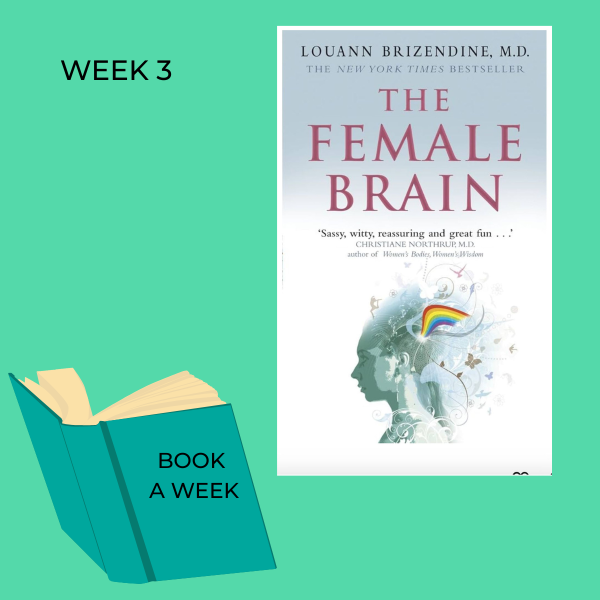
The Female Brain by Louann Brizendine MD
As a 50 something menopausal women looking for insights about the new journey I was on, I bought and read this book as recommended by my then colleague and lovely human that is Victoria Butcher. Working together at the time and bonding over many mutual topics, I knew it would be a good read and was not disappointed.
Based on decades of research and with some super interesting case studies it is a book I recommend not only to women everywhere but also to men too.
I did in fact out a post-it note in the book – page 179 The Mature Female Brain – the section focused on menopause, for my family to read. A sort of here is what is happening to me and here is why I am like I am……. 🤪 😰
Education is the key when it comes to dealing with the menopause…
When you think about it the menopause is a fairly new ‘thing’, and especially for women in the workplace and for businesses too. In 1920, the global average life expectancy for women was around 48 years.
The average age a women goes through menopause (12 months of being period free) is 51 1/2. So less than 100 years of experience of menopause and even less on how it impact women in the workplace
From the 20’s to the 70’s women continue to live longer but many often didn’t remain in the work place after having children.
But now, now, we live longer, return to work after children and stay in the workplace into our 60’s and often beyond!
We are forging new paths; working through these changes and with unprecedented numbers of women in the workplace for longer, menopause is now something that businesses need to understand and work into the operating practices and support culture of their business.
I love books 📚 (4 of 52)
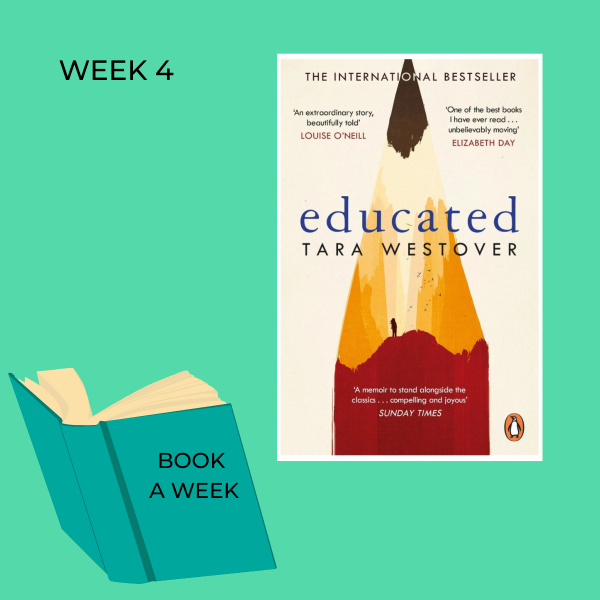
When you are working hard and life is full, it takes a special kind of read to draw you in. A truly unputdownable read…
Tara Westover’s Educated
I was given this book by Billy Glennon after a Vision Consulting event. Billy has a good eye for books and knowing what people may see as interesting & valuable (another book gift from Billy appears in my 52 list)
This book is as heartbreaking as it is inspiring. I found myself curious, angry, incredulous and frustrated but also filled with wonder and admiration.
Educated is Tara’s journey from an very isolated upbringing to earning a PhD from Cambridge University and it is nothing short of extraordinary.
Don’t doubt yourself
I’m not going to say anymore as it would ruin the read…
I love books 📚 (5 of 52)
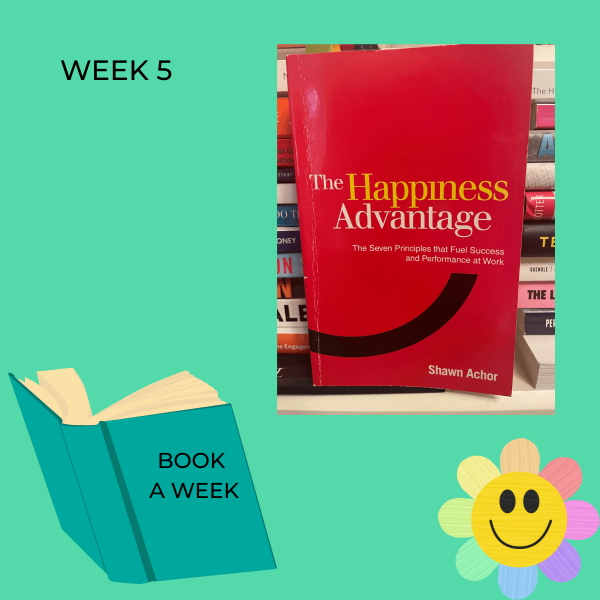
The happiness advantage – Happiness is a choice, so the book says.
Such a relevant book and concept, that is probably even more important to read these days as we can be surround by such negative media messaging.
Author Shawn Achor’s invitation is that we can choose happiness. Choose to be happy in how we do what we do and how we live our lives, in a more conscious way.
How many times have you heard or maybe thought yourself that ‘I will be happy when… get that job, that car, that handbag etc….
I loved the book and the principles as they resonate with one of my favourite quotes by Eleanor Roosevelt “No one can make you feel inferior without your consent” 💛
Shawn share 7 principles in his book – my favourite.. Principle #4 Falling up – capitalising on the downs to build upward momentum.
In this chapter he also references Jim Collins (author of Good to Great) “we are freed by our choices. By scanning our mental map for positive opportunities, and by rejecting the belief that every down in life leads us only further downwards, we give ourselves the greatest power possible: the ability to move up, not despite the setback but because of them!
Happy Friday! go out, go smile – it’s infectious and if nothing else you will make other’s curious about what you have been up to 😉
I love books 📚 (6 of 52)
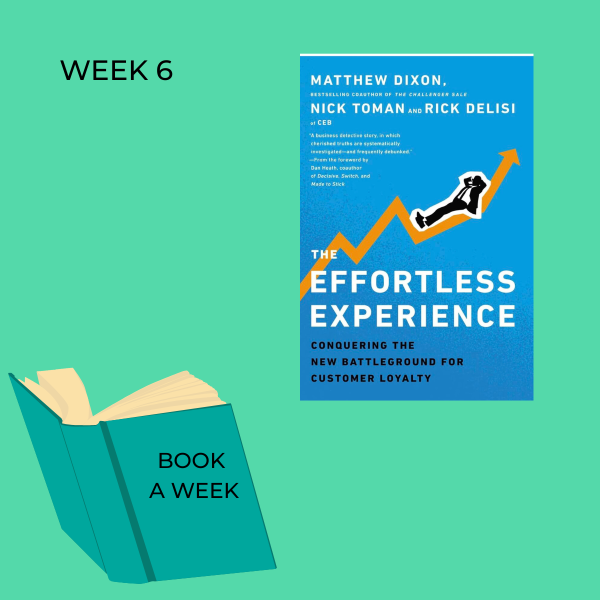
This one is for all CX, CE, CSD & CCO and well, just about anyone who cares about customerserviceexperience.
The Effortless Experience – a recommened read for me back in 2012, from former CEO, Consultant, Business Coach , Friend and all round great guy Mark Palmer. I was leading the customer operation at British Gas Business at the time. It was a new role, new MD, new team, new challenges and a time when the regulator thought we needed to delight utility customers – when what customers really wanted was a simple, easy and painless service.
The book recommendation was spot on at the time and I have shared it many times since. With lots of data and insights the book urges customer service and experience leaders to “Forget bells and whistles and just solve your customer’s problems”.. common sense really…
There are some good case studies and stories on ‘making it easy’ for your people and for your customer; how to get simple data, to focus on small change and to challenge assumptions (or not make any in the first place about what the customer actually wants…)
As with all books – some really nuggets and if you go for the audio version its less than 6 hours..
Martyn Cladingbowl – for our ongoing conversations 😊
I love books 📚 (7 of 52)
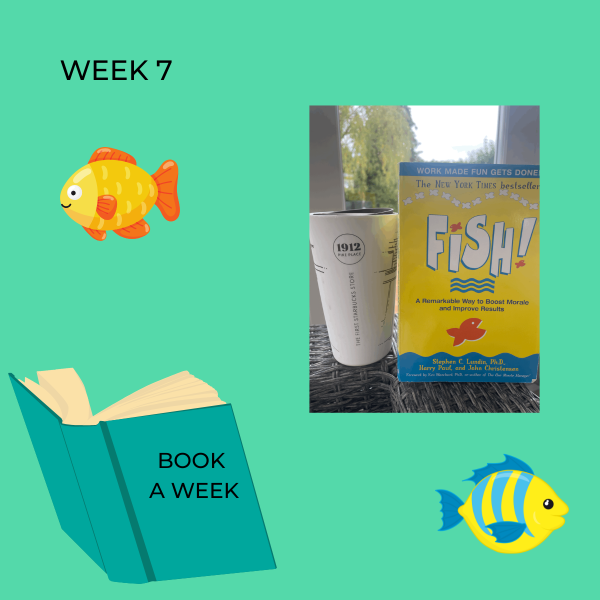
It’s Friday again! And this week’s book is The Fish Philosophy
Time to think by Nancy Kline
I was given this book at a key point in my career – I think it was 2008/9 when leading at Customer Operations and Collections teams, when the global financial system went into meltdown….
I laughed at the notion of reading a book titled ,’Time to Think’ when I didn’t feel I had time (the luxury of time) to do that let alone read!!
But I did and it was impactful.
Listening to ignite the human mind – I still passionatley talk about active listening today. As you can see the book from my shelf still has 2 post-it notes in…
🟪 Pink post-it – Equality – Even in hierachy people can be equal as thinkers. Knowing you will have your turn improves the quality of your listening
🟦 Blue Post-it – A five to one ration of appreciation to criticism helps people to think for themselves. Changes takes place best in a large context of genuine praise
Take time. Our thinking depends on the quality of our attention for each other….
I love books 📚 (11 of 52)
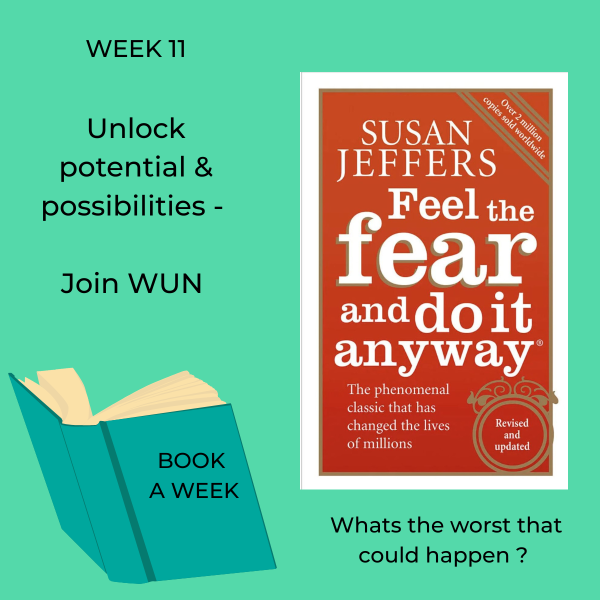
Feel the fear and do it anyway
What’s the worst that can happen?
It’s a question I often ask others in mentoring and ask myself to… When we fear something new , that fear can sometimes be a little irrational…
Susan Jeffers book ‘Feel the fear and do it anyway’ explores how you stop negative thinking patterns and re-educate your mind to think more positively
Asking what’s the worst that can happen is a great question for unpacking what you fear and rationally questioning the likelihood and potential of that fear being realised… often finding that they are not real fears or so very unlikely you can unlock potential and possibilities…
So, what’s stopping you?
I love books 📚 (12 of 52)
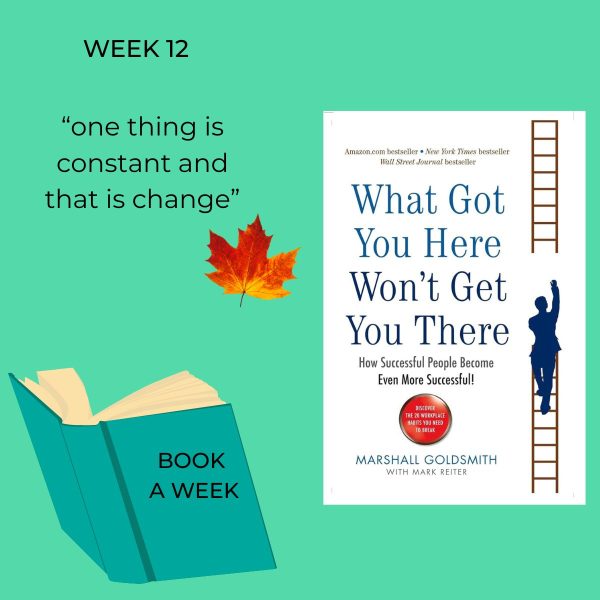
What got you here, won’t get you there
This is not just for leaders and successful people, it for anyone who wants to self improve.
What got you here, won’t get you there – Marshall Goldsmith
In the fast paced world and environment we live in, one thing is constant and that is change, and if we, our teams and businesses are not continually evolving we are effectively going backwards.
So recognising that the skills and capabilities that go you to where you are today, may not be what you need, to get you where you want to go…
Marshall’s story telling brings to life some of the small but limiting habits and behaviours that successful leaders do, that are holding them and their organisations back from reaching their true potential……
Like “Listening effectively” – the significance of genuinely listening to others, which can enhance communication and build better relationships.
or “Adding too much value” – leaders who simply have to comment and contribute, have to share their experiences, or how they would do something, irrespective of the experience and expertise in the room.
Or “understanding the impact of your comments” – the higher you go in an organisation, the more your suggestions become interpreted as orders
Marshall shares about 20 of these habits & behaviours and I am sure most leaders will find a least one where they will say… 🤔 hmmm maybe I do that….
The idea that just because what you’ve done has brought you success, it will continue to do so. Is a fallacy, and it’s important to challenge this belief.
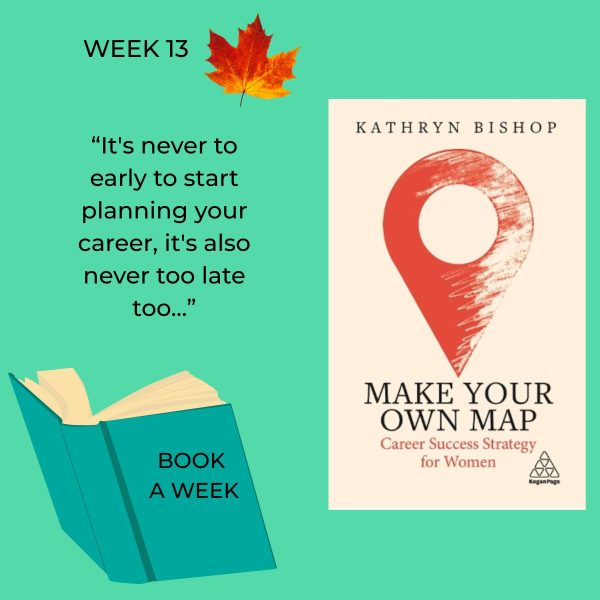
Make Your Own Map
I had the privilege of doing the opening welcome at yesterday evenings WUN – Womens Utilities Network Career’s event. Its the third year in a row WUN have ran the event, hosted this year by Energy Networks Association (ENA) and supported by Microsoft & Computacenter
It was great to see so many engaged women (& men) focussed on their career. Stories, advice, tools, tips and lessons learnt were shared as well, as some time for career reflection on ‘where you are today v where you want to be in the future’
So what better book for share on my weekly book post than Make Your Own Map by Kathryn Bishop CBE . I met Kathryn at Said Business School, Oxford when I participated in a Leadership Programme.
Much of the great stuff taught by Kathryn on the programme has been condensed into this book. And I did comment, when asked to do a pre-publish read of the book, that…
“I could see hundreds of women with tatty worn copies in handbags; like a trusted friend, as the book is used repeatedly to refresh, remind and re-discover the tools that help map out their success story”
It’s never to early to start planning your career, it’s also never too late too…
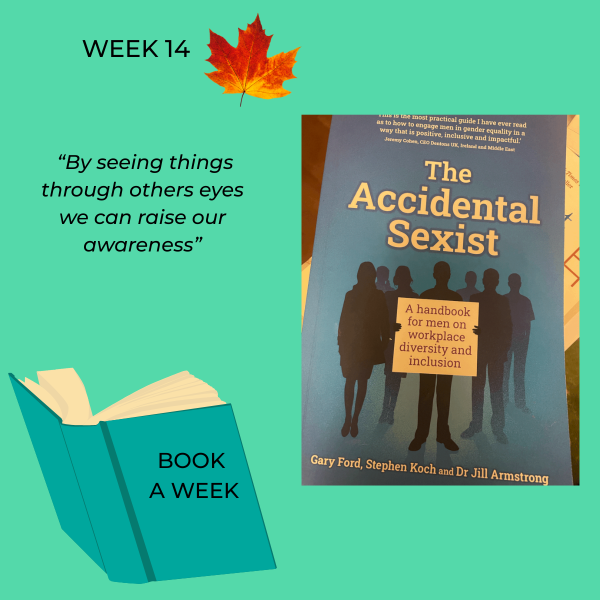
The Accidental Sexist
Don’t be put off by the title of this book. That’s what the author (or one of the authors) Gary Ford said to me when he first shared the book in May this year. Gary has been a huge supporter and collaborator with WUN and we love the stories he shares and impact he has.
The book has some great research, case studies and stories that delve into accidental sexism.
Accidental – adverb…// meaning by chance; inadvertently
It challenges the reader (of any gender) to think about their behaviour and impact. Sometime we just say and do things because.. well, we just do……
it’s what we know, our lived experience. By seeing things through others eyes we can raise our awareness and all be more considered and intentional in our actions.
Gary chaired a panel at a recent event hosted by Baringa in collaboration with WUN – Womens Utilities Network where some of the points were discussed, along with how to build a truly inclusive workplace.
Take away for me was… Inclusivity is about education and understanding; in the workplace, including everyone is great leadership.
I love books 📚 (15 of 52)
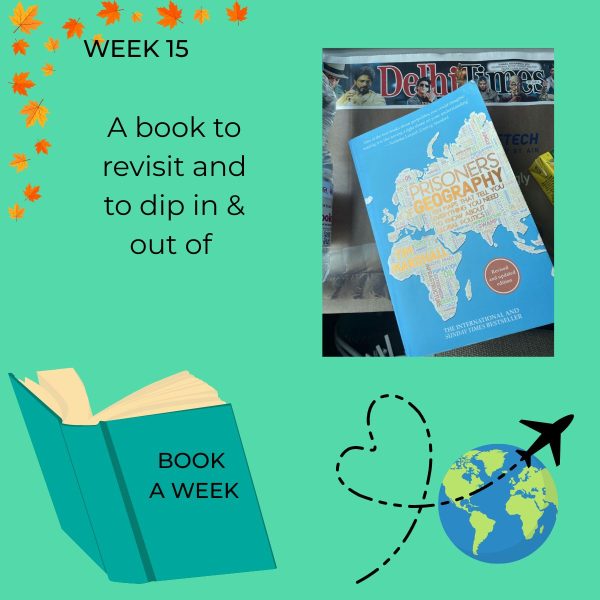
Prisoners of Geography
Ten maps that tell you everything you need to know about global politics.. is the statement on the front of Tim Marshals book ‘Prisoners of Geography’
This is my second (or maybe third) read of this book. Originally published in 2016. There’s so much to take in but after the introduction you can dip in and out reading solely about one map area.
How the land on which we live had always shaped us and the countries in which we live. It’s the perfect travel read….Shimla here I come…
This is a fun one and it is a short simple read. I reckon you can sit down with this book and a coffee (or beverage of your choice 😉 ) and read this book in one hour.
The brief story, based at Pike Place Fish Market in Seattle covers 4 key messages in creating workplace culture
😀 – Choose your attitude – it is your choice how you show up everyday
🙌 – Play – have fun! If we enjoy what we do & the team we work with, it can be fun
🫶 – Make Their day – how do we help others? Colleagues and Customers
🫵 – Be Present – focus on what is happening now! The person talking to you.. the meeting you are in (& not reading emails etc)
Whilst the story in the book is fictional, Pike Place Fish Market and the ways of working are not.
I had the chance to visit Pike Place Fish Market a few years back and see this in action for myself; as well as popping into the very first Starbucks coffee shop located in the same place to.
I grabbed a coffee and watched the magic at Pike Place unfold…
Easy to read, fun but with key messages that are a good reminders about how we show up and what makes a great workplace culture.
I love books 📚 (8 of 52)
📚 How BIG things get done. This was an audio book one for me – 11 hrs consumed in commuting…. The narrators made everything sound so simple and straightforward.
Q. Why do we, as experienced intelligent human’s, with lots of lesson to learn from and in receipt of lots of advice from others (who have experienced BIG issues) still get big change programmes wrong?
There are some real learnings from a range of case studies and interesting projects + lots more for the lateral thinker to mull on too. From the career ending project that was the Sydney Opera House to the Ontime Team T5 – terminal build, to home reno projects and so on…
My favourite bit was, think Lego. Lego is a collections of shapes and pieces that can build very simple to very complex structures. The key is compatibility – the ability to connect. The writers propose that programme leaders would benefit from spending time on thinking about the component parts of a programme, how to utilise them and how obtain value from them as soon as possible, whilst continuing to build additional parts to drive further capability and value… 🤔 very interesting….
I love books 📚 (9 of 52)
I got this booked, signed by the author, when I attended Henley Literary Festival in 2019, hearing Jenni Murray read extracts from her book.
A History of the World in 21 Women 🌎 From Pharaoh Hatshepsut in 1550 BCE to Cathy Freeman born 1973 and 19 women in-between, ranging from Queens and Scientist to Designers and Authors.
Where Marie Curie is next to Chanel and Angela Merkel next to Madonna 💜
Jenni brings to life the stories of these amazing and some lesser known women. A book you can dip in and out of, choosing a story at a time. Stories about women whom Jenni says “They should be known, remembered cheered and emulated by we who follow them”
Favourite quote from Hilary Rodham Clinton “Women are the biggest untapped reservoir of talent in the world”
Who would be in your top 21?
I love books 📚 (10 of 52)